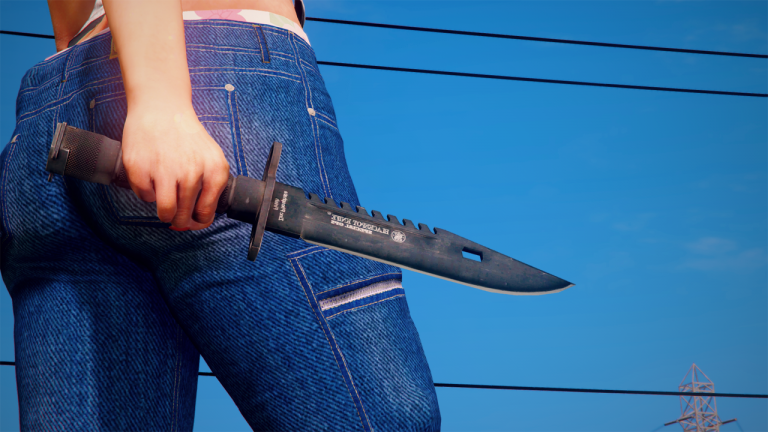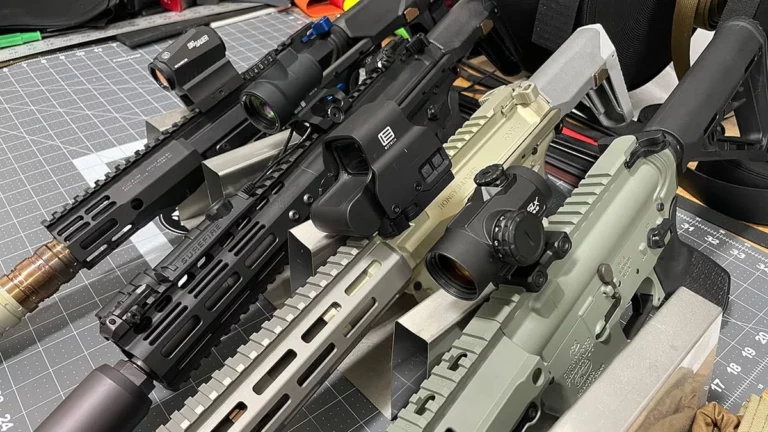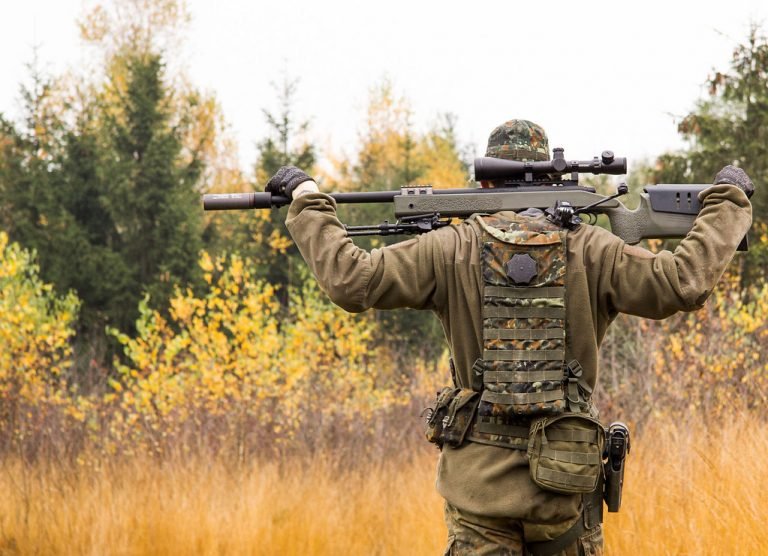When you’re starting your hunting journey, choosing the right rifle feels overwhelming. Walk into any gun store and you’ll face walls of options, each promising to be the “perfect” hunting companion. Here’s the truth: accuracy and reliability matter more than brand names or flashy features.
At Gunner HQ, we understand that your first rifle needs to deliver consistent performance when it counts most—whether you’re tracking whitetail at dawn or facing a once-in-a-lifetime shot opportunity. The wrong choice leads to a missed game, frustration, and wasted time in the field.
This guide cuts through the marketing noise to show you exactly what makes a hunting rifle accurate and reliable for beginners.
What Defines A Good Beginner Hunting Rifle?
Accuracy Essentials
Quality hunting rifles should shoot one-inch groups or better at 100 yards with premium ammunition. Look for rifles that guarantee sub-MOA (minute of angle) performance.
Key accuracy factors include:
- Free-floating barrels—The barrel doesn’t touch the stock except at the action, preventing interference that throws off shots.
- Quality bedding—Steel bedding blocks or aluminum pillars create a solid foundation between action and stock.
- Barrel construction—Cold hammer-forged or button-rifled barrels from reputable manufacturers provide consistent performance.
Reliability Requirements
Reliability means your rifle works every time you pull the trigger. Bolt-action rifles excel here due to their mechanical simplicity—fewer moving parts mean better reliability in harsh conditions.
Look for smooth action cycling, consistent feeding, and weather-resistant finishes like Cerakote that protect against moisture and corrosion during extended outdoor use.
Core Specs That Matter
Action Type
For new hunters, bolt-action rifles offer significant advantages over semi-auto rifles. The mechanical simplicity means exceptional reliability, while manual cycling encourages deliberate shot placement rather than rapid fire. This builds fundamental marksmanship skills that serve you throughout your hunting career.
Barrel Quality And Length
The barrel determines accuracy potential. Look for 20-24 inch barrels that balance velocity with maneuverability. Twist rate should match your intended ammunition—1:10 works well for most hunting cartridges.
Stock Design
Rigid stocks prevent flex that affects shot placement. Adjustable length of pull and cheek height help customize fit for proper scope alignment and comfortable shooting positions. Modern synthetic stocks provide better weather resistance than traditional wood.
Trigger And Materials
Factory triggers on quality rifles adjust between 3 and 5 pounds, perfect for hunting. Whether single-stage or two-stage, the key is consistency and a clean break. Weather-resistant finishes protect against harsh field conditions.
Top Rifle Options By Budget
Under $600: Entry Level
The Ruger American Gen 2 leads this category. The new generation features a Cerakote finish, an improved stock with adjustable length of pull, and AI-style magazines. It consistently shoots tight groups while proving you don’t need premium pricing for reliable performance.
CVA Cascade offers excellent value using the same barrels as more expensive Bergara rifles due to shared manufacturing, giving you premium barrel quality at entry-level pricing.
$750 Range: Sweet Spot
Tikka T3x Superlite dominates this tier with legendary smooth action and phenomenal accuracy. At 6.2 pounds in the .308 configuration, it maintains sub-MOA performance while offering lifetime upgrade potential for barrels, stocks, or triggers.
The Bergara B-14 Ridge provides excellent value with guaranteed sub-MOA accuracy using match-grade ammunition. The free-floated, threaded barrel and Remington 700-style action offer extensive customization options.
Premium Investment
The Sako S20 Hunter showcases Finnish craftsmanship with precision engineering and a thumbhole stock design. Sig Cross delivers modern innovation—compact, lightweight, accurate, and fully adjustable for serious hunters demanding the best.
Premium rifles offer tighter manufacturing tolerances, advanced materials, and features like adjustable triggers that provide decades of reliable service.
Common Beginner Mistakes
Brand Name Fixation
Many beginners focus on prestigious names while ignoring practical considerations. A premium rifle won’t improve your hunting if it doesn’t fit properly or chambers inappropriate cartridges.
Focus on features that matter:
- Accuracy guarantees from the manufacturer
- Reliable actions that cycle smoothly under field conditions
- Appropriate cartridge chamberings for your intended game
- Proper fit to your body dimensions
Poor Ammunition Choices
The ammunition you choose impacts performance more than the rifle itself. Premium rifles won’t shoot accurately with cheap, inconsistent rounds. Test different brands and bullet weights to find what your rifle prefers.
Neglecting Maintenance
Essential maintenance practices include:
- Regular barrel cleaning to prevent fouling buildup
- Action lubrication for smooth cycling
- Proper storage with moisture protection
- Regular inspection to catch problems early
Ignoring Local Laws
Research barrel length restrictions, caliber limitations, and magazine capacity laws in your area before purchasing. Some states restrict certain cartridges for specific game or mandate minimum calibers for big game hunting.
Choosing Your Rifle
Match Rifle To Game
Cartridge selection should align with your intended quarry:
- Small to medium game (whitetail deer, antelope) – .243 Winchester, 6.5 Creedmoor, .270 Winchester, .308 Winchester provide excellent performance with manageable recoil
- Large game (elk, moose, bear)—May require magnum cartridges for adequate stopping power
- Varmint hunting—Smaller cartridges like .223 Remington work well for prairie dogs and coyotes.
Consider Your Environment
Dense timber hunting favors shorter, lighter rifles like lever-action rifles that maneuver easily. Open country benefits from longer-range bolt-action capabilities. Mountain hunting demands lightweight rifles that won’t exhaust you during climbs.
Budget vs. Longevity
Consider long-term hunting goals when setting budgets. Factor in scope costs, ammunition expenses, and potential modifications. Sometimes spending more initially provides better value than starting cheap and upgrading later.
Explore our complete selection, including AR rifles, pump-action rifles, single-shot rifles, AK rifles, and other rifles, to find your perfect match.
Conclusion
Accuracy and reliability should guide your first rifle choice above all other considerations. A well-maintained rifle can outperform premium guns that are neglected. Focus on proven designs from reputable manufacturers that guarantee accuracy and provide proper customer support.
The rifles highlighted—from the budget-friendly Ruger American Gen 2 to the premium Sako S20 Hunter—all deliver the accuracy and reliability new hunters need. Your choice depends on budget, intended use, and personal preferences.
Remember that the rifle is only one component of hunting success. Invest in quality optics, practice regularly, and prioritize safety and ethical hunting practices. Start with a reliable, accurate rifle that fits your needs and budget, then build your skills through practice and experience.

Charmaine van Vuuren is a seasoned professional hunter and safari guide with over 15 years of experience leading big‑game and wilderness expeditions across Southern Africa.
Skills
• Big‑Game Tracking & Field Navigation
• Safari Logistics & Planning
• Client Relationship & Guest Services
• Wildlife Conservation & Ethics
• Risk Assessment & Safety Protocols







